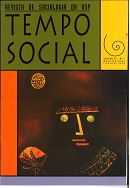The eagle and the starlings: Galileo and the autonomy of science
DOI:
https://doi.org/10.1590/S0103-20702001000100005Keywords:
Galileu Galilei, facts, values, sciencesAbstract
The idea that science is "value free" can be traced back to the emergence of the distinction between fact and value in the 17th century. It can be considered to have three components: impartiality, neutrality and autonomy. We show that important parts of these component ideas were developed and defended by Galileo, principally in his letters to Castelli and to Grand Duchess Cristina and in his books The Assayer and Two Chief World Systems. Galileo's argument for autonomy is particularly powerful and, although lacking the generality introduced in later arguments (since his principal concern was to win autonomy for science from the authority of the Church), it remains at the core of all subsequent defenses of the autonomy of science. This argument is based on three suppositions: that scientific understanding is subject to criteria that are independent of the Church's authority and of any value perspective, that scientists have cultivated the virtues of the "scientific ethos", and that (because they use different languages - the "two books" argument) there cannot be contradiction between properly made scientific judgments and declarations of the Church. Finally some limitations of Galileo's arguments are indicated but not developed.Downloads
References
BLACKWELL, R. J. (1991) Galileo, Bellarmine, and the Bible. Notre Dame, University of Notre Dame Press.
CUPANI, A. (1998) A propósito do ‘ethos’ da ciência. Episteme, 3: 16-38.
FINOCCHIARO, M. A. (1980) Galileo and the art of reasoning: rhetorical foundations of logic and scientific method. Dordrecht, Reidel.
FINOCCHIARO, M. A. (1989) The Galileo affair: a documentary history. Berkeley, University of California Press.
FINOCCHIARO, M. A. (org.).(1997) Galileo on the world systems. Berkeley, University of California Press.
GALILEI, G. (1928-1938) Edizione nazionale delle opere di Galileo Galilei. In: FAVARO, Antonio (org.). Edizione nazionale delle opere di Galileo Galilei. 19 vols. Florença, Barbéra.
LACEY, H. (1998) Valores e atividade científica. São Paulo, Discurso Editorial.
LACEY, H. (1999) Is science value free? Values and scientific understanding. Londres, Routledge.
LACEY, H. (2000) As formas nas quais as ciências são e não são livres de valores. Revista do Departamento de Filosofia da Universidade Estadual de Londrina, Londrina (no prelo).
LACEY, H. (2001) Ciência e valores: como devem os valores influenciar a ciência? In: A pesquisa e novas paradigmas da sociedade: II conferência científica da Universidade Federal do Rio Grande do Sul, Porto Alegre, Editora da UFRGS (no prelo).
MARICONDA, P. R. (1997) A questão da autonomia da ciência em Galileu. Conferência proferida no II Encontro de Estudos Filosóficos do Século XVII. São Paulo, 26 de maio.
MARICONDA, P. R. (1999) Galileu e a teoria das marés. Cadernos de História e Filosofia da Ciência, Série 3, 9(1-2): 33-71.
MARICONDA, P. R. (2000) O Diálogo de Galileu e a condenação. Cadernos de História e Filosofia da Ciência, Série 3, 10(1): 77-163.
MCMULLIN, E. (1978) The conception of science in Galileo’s works. In: BUTTS, R. E. & PITT, J. C. (orgs.). New perspectives on Galileo. Dordrecht, Reidel, p. 209-257.
MARICONDA, P. R. (1998) Galileo on science and Scripture. In: MACHAMER, P. (org.). The Cambridge companion to Galileo. Cambridge, Cambridge University Press, p. 271-347.
NASCIMENTO, C. A. R. do. (1988) Ciência e fé. Cartas de Galileu sobre a questão religiosa. São Paulo, Nova Stella/Instituto Cultural ÍtaloBrasileiro.
PASCAL, B. (1989) Preface to the treatise on the vacuum. In: POPKIN, R. H. (org.). Pascal selections. New York, Macmillan.
PASCAL, B. (1998) Préface sur le traité du vide. In: GUERNM M. Le (org.). Oeuvres complètes. Paris, Gallimard, p. 452-458.
WALLACE, W. A. (1992a) Galileo’s logic of discovery and proof: The background, content and use of his apropriated treatises of Aristotle’s Posterior Analytics. Dordrecht, Kluwer.
WALLACE, W. A. (1992b) Galileo’s Logical Treatises: A translation, with notes and commentary, of his apropriated latin questions on Aristotle’s Posterior Analytics. Dordrecht, Kluwer.
Downloads
Published
Issue
Section
License
Copyright (c) 2015 Tempo Social

This work is licensed under a Creative Commons Attribution-NonCommercial 4.0 International License.


